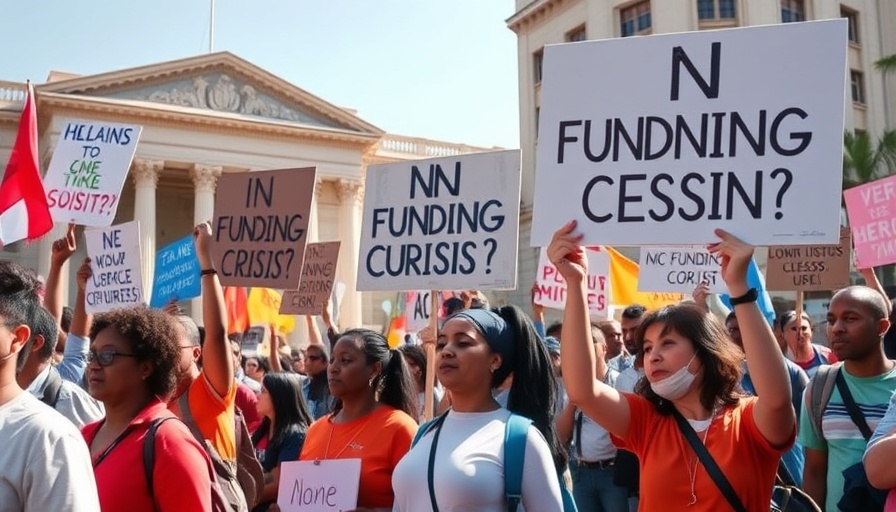
The UN in Crisis: Unraveling the Funding Catastrophe
The United Nations, marking its 80th anniversary, finds itself ensnared in a funding crisis that threatens millions reliant on its aid. Once a beacon of hope for global cooperation, recent cuts in contributions, notably from the U.S., are now casting a pall over its humanitarian efforts. As reported in Inside Story, the turmoil is not merely fiscal but is indicative of a failure to adapt to the shifting geopolitical landscape, particularly under an administration that emphasizes 'America First'. The UN’s Senior Officials have signaled that these funding slashes could lead to an apocalypse of humanitarian consequences, with food supplies in nations like Sudan hanging by a thread.
In 'Why does the United Nations face a funding crisis?', the discussion dives into critical insights about the challenges faced by the UN, prompting us to explore the broader implications of this crisis.
Impact on Vulnerable Communities
The reality of these cuts extends beyond numbers as highlighted by humanitarian leaders. In the face of drastic reductions, many nations, like Sudan and Afghanistan, are teetering on the brink of famine and instability. The United Nations operates on a fragile web of funding that is often threatened by nationalist policies. As these aid budgets continue to dwindle, the most vulnerable communities bear the brunt of these austerity measures. It is crucial to remind ourselves that with every percentage cut to aid, it is not just an abstract statistic but lives at stake.
The Need for Reform: A Silver Lining?
As criticism mounts over its perceived inefficiency, UN Secretary-General Antonio Guterres has embarked on a bold efficiency initiative, suggesting radical reforms and departmental mergers. While restructuring may be a necessary step, it raises significant concerns about prioritizing operational efficacy over humanitarian needs. The risk is profound: a leaner, more 'efficient' UN could easily become a less effective one if accountability to local communities is sacrificed on the altar of cost-cutting.
Can the UN Still Serve Global Interests?
This crisis prompts deeper questions: Is the UN still capable of protecting the values it was founded upon? Or are we witnessing, as experts warn, a shift towards isolationism that undermines global stability? It seems evident that the current trajectory could very well disrupt not only the UN's mission but also its very legitimacy as an institution meant to foster international cooperation.
Conclusion: The Road Ahead
In dire need of essential reforms that prioritize human rights and humanitarian aid, the UN's ability to recover from this crisis will depend on its commitment to adaptation and responsiveness to the realities on the ground. If significant portions of the global community continue to turn their backs on this institution, what does the future hold for the most vulnerable among us?
 Add Row
Add Row  Add
Add 




Write A Comment